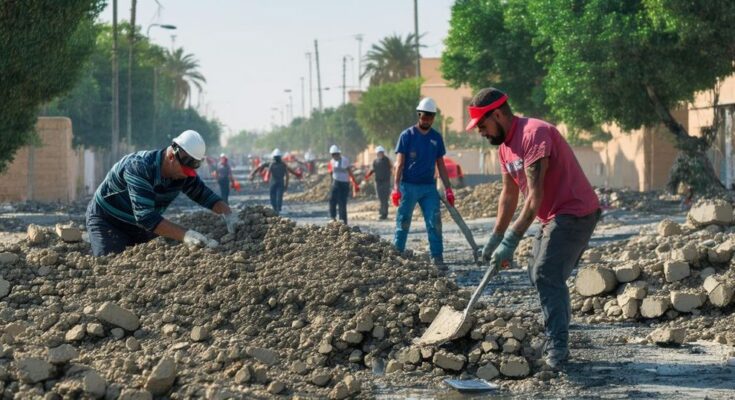Michaela Creel, a Northeastern co-op student, worked with the High Atlas Foundation in Morocco following a severe earthquake. Her role involved communications, assisting in recovery and sustainable development initiatives focused on agriculture, women empowerment, and water systems. Creel’s engagement provided her with a profound and immersive cultural experience, showcasing the foundation’s efforts to support local farming communities in the aftermath of the disaster.
In the wake of a devastating earthquake that struck the High Atlas mountain region of Morocco in September 2023, a Northeastern co-op student, Michaela Creel, contributed to recovery efforts through her engagement with the High Atlas Foundation. Founded in 2000 by former Peace Corps volunteers, this nonprofit organization is dedicated to promoting sustainable development in Morocco, particularly in rural communities that rely on agriculture. Creel, who is currently a third-year student majoring in international affairs and cultural anthropology, chose to take on this impactful co-op opportunity instead of a traditional desk job after noting the organization’s mission and alignment with her academic pursuits. The High Atlas Foundation focuses on three main pillars: agricultural development, women’s empowerment, and the creation of sustainable water systems. Creel highlighted the organization’s extensive agricultural efforts, including the planting of over five million trees and the production of two million saplings annually, which directly support over 15 provinces. Through workshops aimed at educating and empowering women, the foundation assists in fostering entrepreneurship and self-sufficiency. Additionally, it aids communities in designing systems that ensure access to clean water for drinking and irrigation. Notably, most employees of the foundation are locals from the very villages they service, ensuring that development efforts are community-driven and sustainable. During her co-op in early 2024, Creel found herself heavily involved in initiatives focused on aiding farmers affected by the recent earthquake. As the quake’s epicenter was located in a mountainous area, many traditional farming communities suffered substantial damage, necessitating immediate recovery efforts. Creel’s primary role revolved around communications, which entailed visiting local farmers, distributing saplings, and documenting the foundation’s projects to enhance visibility and support from donors. Her work included creating an interactive online tour of one of the foundation’s nurseries, which offered users a unique experience to connect with caretakers and learn about their efforts in reforestation. Living in Medina with two other interns, Creel adapted to her new environment and integrated into the local culture. She developed personal connections with her neighbors and engaged in local traditions, enriching her experience significantly compared to a conventional study abroad program. Creel’s observations of the community’s openness and hospitality during Ramadan, when fasting individuals invited her to break their fast, exemplified the warmth and inclusiveness she encountered throughout her stay.
The focus of this article is on the collaborative and impactful recovery efforts initiated by the High Atlas Foundation following the significant earthquake in Morocco’s High Atlas mountain region. This region is historically known for its agricultural practices, particularly in growing olives and almonds. The earthquake posed a substantial challenge to the sustainability of these communities, which were already striving to adapt to environmental changes. The High Atlas Foundation plays a crucial role in facilitating recovery by emphasizing agricultural development, women’s empowerment, and water sustainability, thus reinforcing the resilience of local communities.
Michaela Creel’s internship at the High Atlas Foundation exemplifies the meaningful contributions that cooperative education can provide, particularly in crisis recovery scenarios. Through her efforts in communications and community engagement, she has assisted in promoting sustainable development in a region devastated by an earthquake. Her experiences underscore the vital role that local organizations play in rebuilding communities while fostering empowerment and long-term sustainability. Additionally, her immersion into Moroccan culture enriched her understanding of international affairs and human interactions, demonstrating the profound effects of hands-on experience in a global context.
Original Source: news.northeastern.edu




